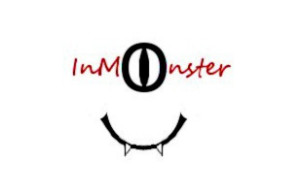
Image by J. Finn-Irwin
You’re probably thinking this entire post should consist of one word:
“Don’t.”
But it’s not going to. Because as it turns out, there is a right way to write formula fiction.
Let’s start with the preliminaries.
What is formula fiction?
Wikipedia defines formula fiction as “literature in which the storylines and plots have been reused to the extent that the narratives are predictable.”
Why does formula fiction usually suck?
“Predictable” is the operative word. If you’re in the first few scenes of a book or movie and are already able to predict who’s going to die, who is the murderer, or who’s going to fall in love with whom, that’s because it’s formulaic. Mac ‘n’ cheese. The same ingredients every time. The writer isn’t pushing anymore. The story is boring and unoriginal.
Why do we still like reading bad formula fiction sometimes?
For the same reason we like Easy Mac—those little plastic bowls of instant mac-and-powdered-cheese you’re horrified to admit you’ve eaten. Though it’s probably made of packing peanuts and crushed up beetles, and though a $10 plate of gourmet macaroni with gruyere and applewood smoked bacon tastes infinitely better, sometimes you just want some Easy Mac. Cheap. Fast. Cheese-ish.
How can I make formula fiction awesome?
Perhaps I should have titled this post “Wodehouse fills my heart with joy,” because I’m going to turn right around and tell you that one of my favorite authors is, technically speaking, a writer of formula fiction.
Since Anne informed me back in April that I had to read P.G. Wodehouse (or, presumably, no longer be allowed among the ranks of People Who Know About Good Books), I have devoured four Wodehouse volumes (20+ separate stories) and have started on a fifth.
P.G. Wodehouse is best known for his series about Bertram Wooster and his valet, Jeeves. These stories usually go something like this:
- Bertie or one of his friends either needs to escape from an engagement, or to convince a rich relative to let him marry a girl of questionable status.
- Bertie seeks advice from his brilliant valet, Jeeves.
- Jeeves coldly fails to offer help. Bertie surmises it is because he has recently bought some article of clothing of which Jeeves disapproves.
- Determined not to be ruled by his valet, Bertie elects to keep said article of clothing, and comes up with his own plan to get out of the bind.
- Bertie’s plan fails miserably.
- Suddenly, everything works out – and we discover it was all Jeeves’ doing after all.
- Bertie, overcome with gratitude, offers to let Jeeves dispose of the aforementioned offensive article of clothing.
- Jeeves informs Bertie that he has already taken the liberty of doing so.
Occasionally a plot involves betting on the fatness of uncles or on community sack races. But you get the picture.
Yet, with such predictability, I am never bored. Here’s why.
Wodehouse’s Points of Awesome
Hilarious Voice.
Although Wodehouse gives us plenty of situational comedy, very little (besides your serotonin levels) has changed by the end; the story serves more as a vehicle for wit than as an end to itself – wit which continually surprises when the plot does not.
Iconic Characters.
Wodehouse’s heroes are more iconic than cliché, and the contrast between Bertie’s bumbling lovability and Jeeves’ sophisticated stoicism is inherently funny, in much the same way the contrasts between Kirk and Spock, Holmes and Watson, and Gimli and Legolas are inherently funny.
Running Gags.
This is a case of Manuel explaining to Mycroft the difference between “funny once” jokes and “funny all the time” jokes. Some things are funny because they’re unexpected; some things are funny because “oh, that is so like him!” such as Garfield kicking Odie off the table, or the Earth getting blown up in the Hitchhiker’s trilogy.
Surprises.
While Wodehouse’s work usually follows a pattern, occasionally he still surprises you – like when Jeeves narrates instead of Bertie, or when a friend forces Bertie to masquerade as a mass market romance novelist. The patterns then serve to make the surprises all the more delightful.
Someone in an Amazon review called Wodehouse the Mozart of formula fiction; I’m inclined to agree. Wodehouse may always use the same ingredients, but they are quality ingredients.
So if formula is your forte, don’t use the stereotype as an excuse to be sub-par. Strive instead for the above four Points of Awesome. Strive to make the best macaroni and cheese ever.
—




